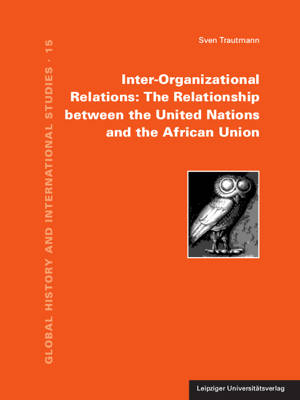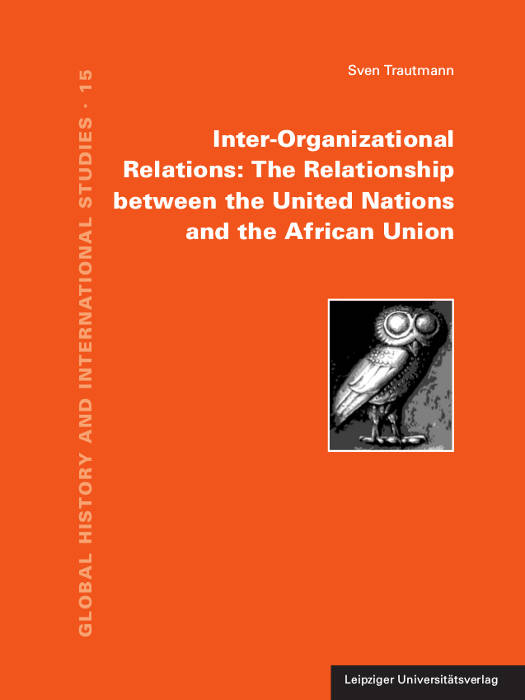
- Retrait gratuit dans votre magasin Club
- 7.000.000 titres dans notre catalogue
- Payer en toute sécurité
- Toujours un magasin près de chez vous
- Retrait gratuit dans votre magasin Club
- 7.000.000 titres dans notre catalogue
- Payer en toute sécurité
- Toujours un magasin près de chez vous
Inter-Organizational Relations: The Relationship between the United Nations and the African Union
Sven Trautmann
32,95 €
+ 65 points
Description
By looking on how the inter-organizational relationship between the United Nations (UN) and the African Union (AU) is structured, the book presents new empirical and theoretical findings in the field of international organizations (IOs). Therefore, the AU is understood as a regional organization (RO) and relations between the UN and ROs are described and examined. A particular focus is set on the origin, the development, and the constitution of the UN-AU relationship. In order to understand the complex relationship between the UN and the AU, four institutionalized consultation forums are analyzed by an extensive reflection of primary sources and by interviews. The four forums are first the "Annual Joint Consultative Meetings between the African Union Peace and Security Council and the United Nations Security Council", second the "African Union-United Nations Joint Task Force on Peace and Security", third the United Nations Office to the African Union, and fourth the Permanent Observer Mission of the African Union to the United Nations in New York. Due to the fact that none of the four forums was analyzed before, the understanding of structures and actor's behaviour, of activities and interactions, as well as of main topics, documents, and many more aspects is broadened. This leads to a better understanding of the UN, the AU, their mutual relationship, and of IO's in general. The research has shown that IOs tend to structure and formalize their relations. Hereby, an overlapping membership often promotes further interactions.
Spécifications
Parties prenantes
- Auteur(s) :
- Editeur:
Contenu
- Nombre de pages :
- 299
- Langue:
- Anglais
- Collection :
- Tome:
- n° 15
Caractéristiques
- EAN:
- 9783960234067
- Date de parution :
- 09-08-21
- Format:
- Livre relié
- Dimensions :
- 156 mm x 28 mm
- Poids :
- 586 g







